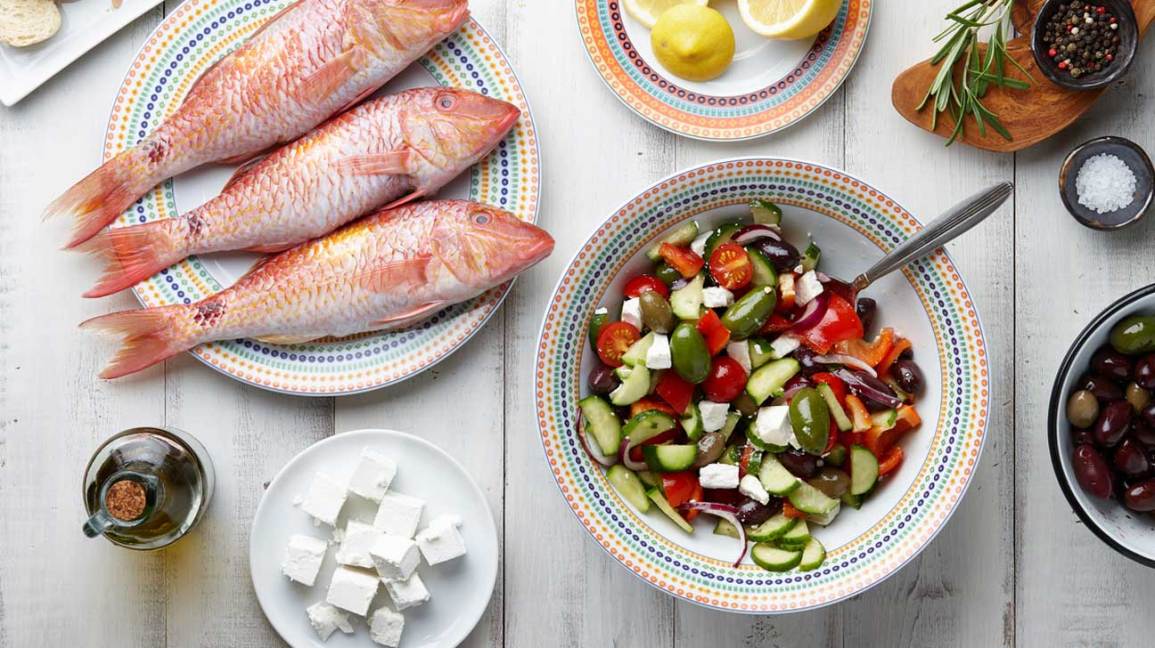What Makes This the Best Mediterranean Diet Guide?
Tired of diets that leave you hungry, frustrated, or confused? You’re not alone. Many people want to eat better but struggle to find a plan that’s simple, healthy, and enjoyable.
That’s where this best Mediterranean diet guide comes in. Unlike fad diets, the Mediterranean diet is a sustainable, science-backed approach inspired by the traditional eating habits of Greece, Italy, and coastal Spain. It focuses on delicious, whole foods that nourish your body without restriction.
Whether you’re looking for better heart health, sustainable weight loss, or an anti-inflammatory lifestyle, this guide covers everything you need—from food lists to daily tips—to help you get started and stay on track.
Mediterranean Diet Benefits Backed by Real Science
1. Mediterranean Diet Benefits for Heart Health
Studies show the Mediterranean diet helps lower bad cholesterol and reduces the risk of heart disease and stroke. Olive oil, nuts, fish, and whole grains all play a role in keeping your heart strong and healthy. Source
2. Brain and Mood Support
Thanks to its rich mix of omega-3s, antioxidants, and polyphenols, this diet helps protect your brain. It improves memory, reduces brain fog, and even lowers the risk of depression.
3. Mediterranean Diet for Weight Loss
With its high fiber, lean proteins, and healthy fats, this eating style keeps you full longer and helps reduce cravings—naturally supporting weight loss without calorie counting.
4. Anti-Inflammatory Mediterranean Diet for Gut Health
Packed with colorful vegetables, fruits, legumes, and whole grains, the Mediterranean diet is naturally anti-inflammatory. It promotes better digestion and may reduce bloating and joint pain.
5. Longevity and Disease Prevention
People in Mediterranean regions often live longer, healthier lives. This lifestyle is linked to a lower risk of diabetes, cancer, Alzheimer’s, and other chronic illnesses. Source
Mediterranean Diet Food List: What to Eat and Why
Eat More:
- Olive oil – A heart-healthy fat for cooking and dressing
- Vegetables and fruits – Provide fiber, vitamins, and antioxidants
- Whole grains – Such as oats, quinoa, and whole wheat pasta
- Legumes – Beans, lentils, and chickpeas for plant-based protein
- Fish and seafood – Rich in omega-3s for brain and heart health
- Nuts and seeds – Great for energy and healthy snacking
- Herbs and spices – Boost flavor and reduce the need for salt
Eat in Moderation:
- Yogurt, cheese, and eggs – Nutrient-dense, but not overdone
- Poultry – Enjoy a few times a week
- Red wine (optional) – One small glass with meals
Eat Less:
- Red and processed meats
- Sugary drinks and sweets
- Refined grains and fried foods
Mediterranean Diet Recipes: 1-Day Sample Meal Plan
Breakfast: Greek yogurt with oats, fresh berries, and a drizzle of honey
Lunch: Chickpea salad with tomatoes, cucumber, olive oil, and herbs
Snack: Almonds and a pear
Dinner: Grilled salmon, roasted vegetables, and brown rice
Dessert (optional): Baked apple with cinnamon
👉 Pro Tip: Focus on simple, colorful, and seasonal ingredients. Source
How to Follow the Mediterranean Diet in 5 Easy Steps
- Use olive oil instead of butter or processed oils
- Add vegetables or fruit to every meal
- Replace red meat with fish, beans, or lentils
- Snack on nuts and seeds instead of chips or sweets
- Enjoy meals slowly and eat with others when possible
These small habits build up into lasting, healthy lifestyle changes.
Mediterranean Diet vs Keto and Other Diets
Compared to keto or low-carb plans, the Mediterranean diet is balanced and realistic. It doesn’t eliminate carbs or require macros tracking. You enjoy grains, healthy fats, fruits, and vegetables.
Bottom line: It’s easy to maintain, doesn’t feel restrictive, and is backed by real clinical research—not hype.
Mediterranean Lifestyle Tips That Boost Results
Beyond food, the Mediterranean lifestyle supports overall wellness:
- Move daily – Walk, stretch, or enjoy light activity
- Prioritize rest – Aim for 7–8 hours of quality sleep
- Eat mindfully – Put down your phone and enjoy each bite
- Connect with others – Share meals and conversations regularly
Together, these habits help reduce stress and support both mental and physical health.
Common Myths About the Mediterranean Diet (Debunked!)
- “Too high in fat” – It uses healthy fats that reduce disease risk
- “Very expensive” – Staples like beans, rice, and local veggies are affordable
- “Highly complicated” – It’s actually one of the easiest diets to follow
Conclusion: Start Your Mediterranean Journey Today
The best Mediterranean diet guide isn’t about perfection—it’s about progress. With its simple foods, proven health benefits, and joyful approach to eating, this lifestyle is easy to stick to and rewarding for the long haul.
Whether you’re focused on heart health, sustainable weight loss, or reducing inflammation, this is a delicious, practical path forward.
Take action today: Try one Mediterranean-style meal this week and start experiencing the benefits firsthand.
Read more about: The Mediterranean Diet: 21 Recipes
Health Benefits of Fasting
Best Meal Planning Apps
Unhealthiest Junk Foods
Cleveland – Mediterranean Diet

